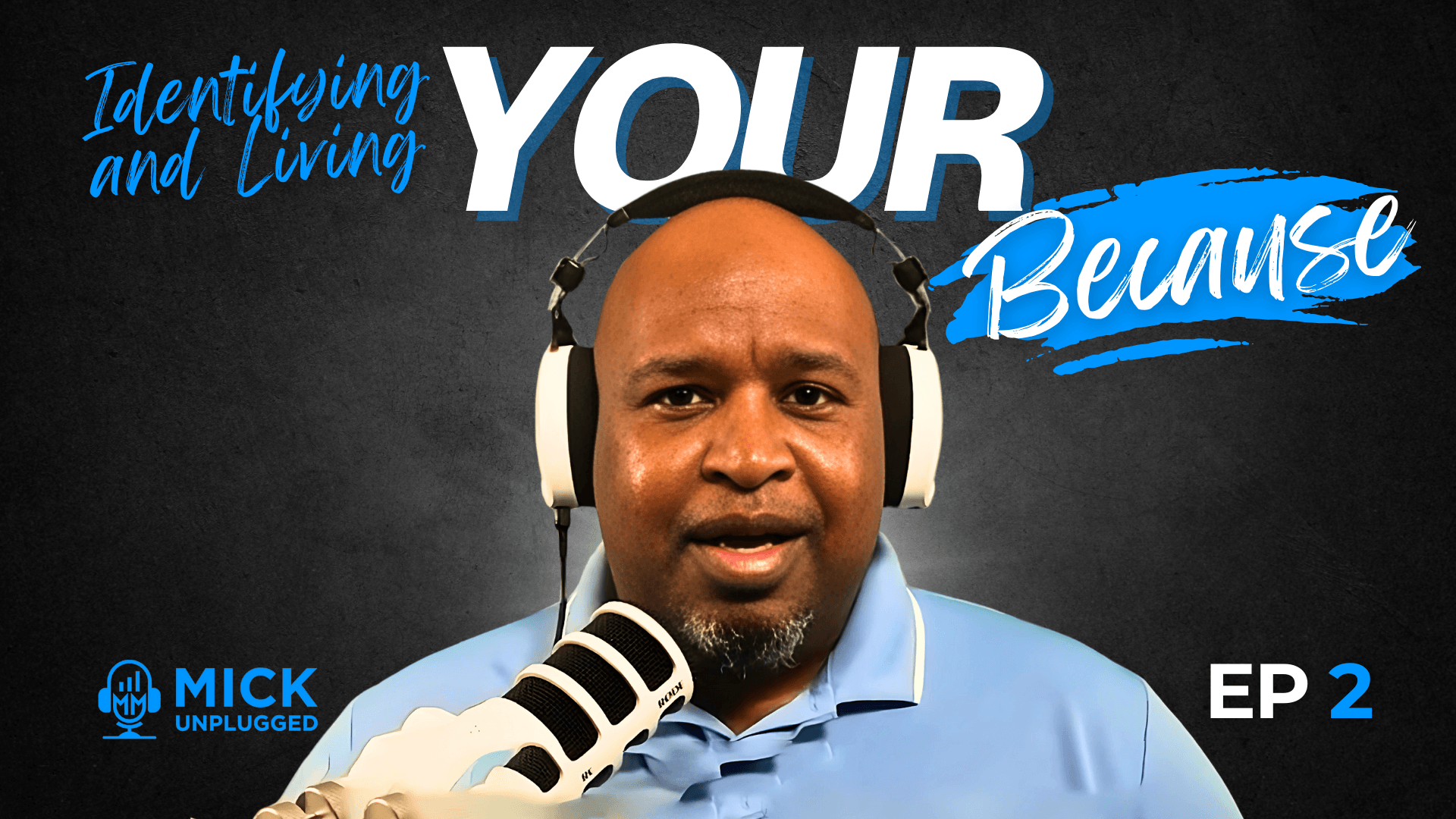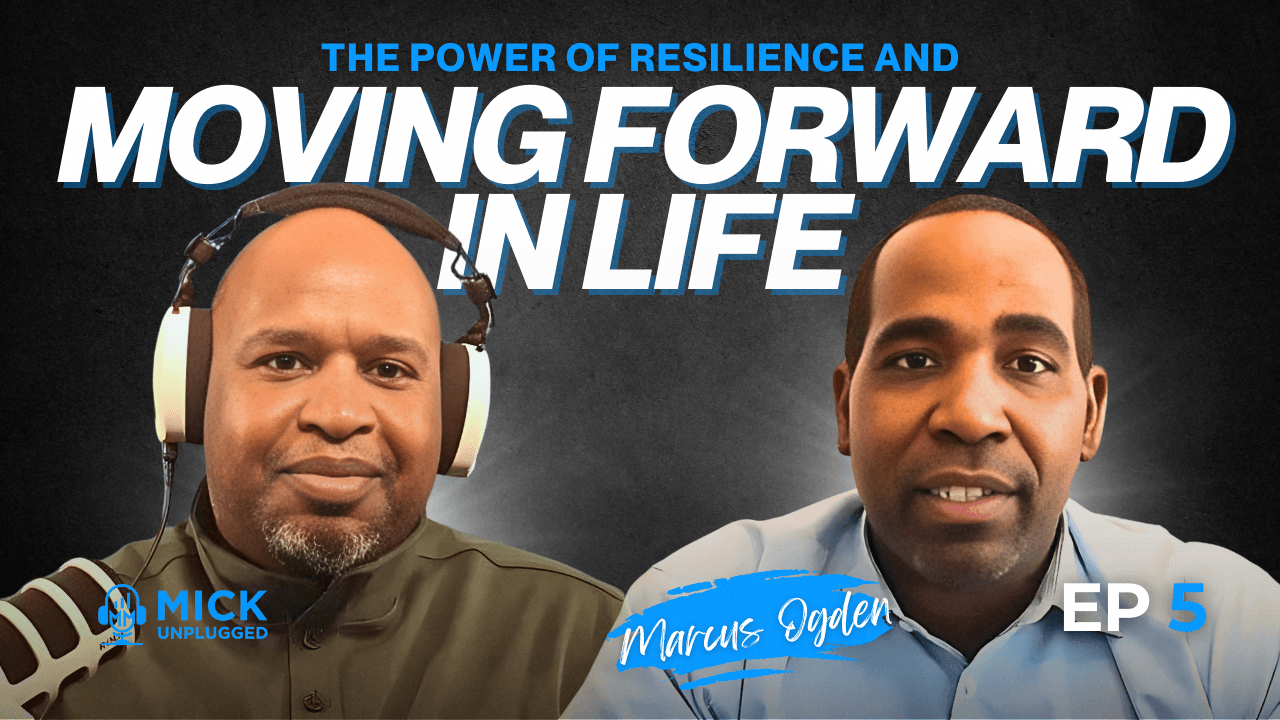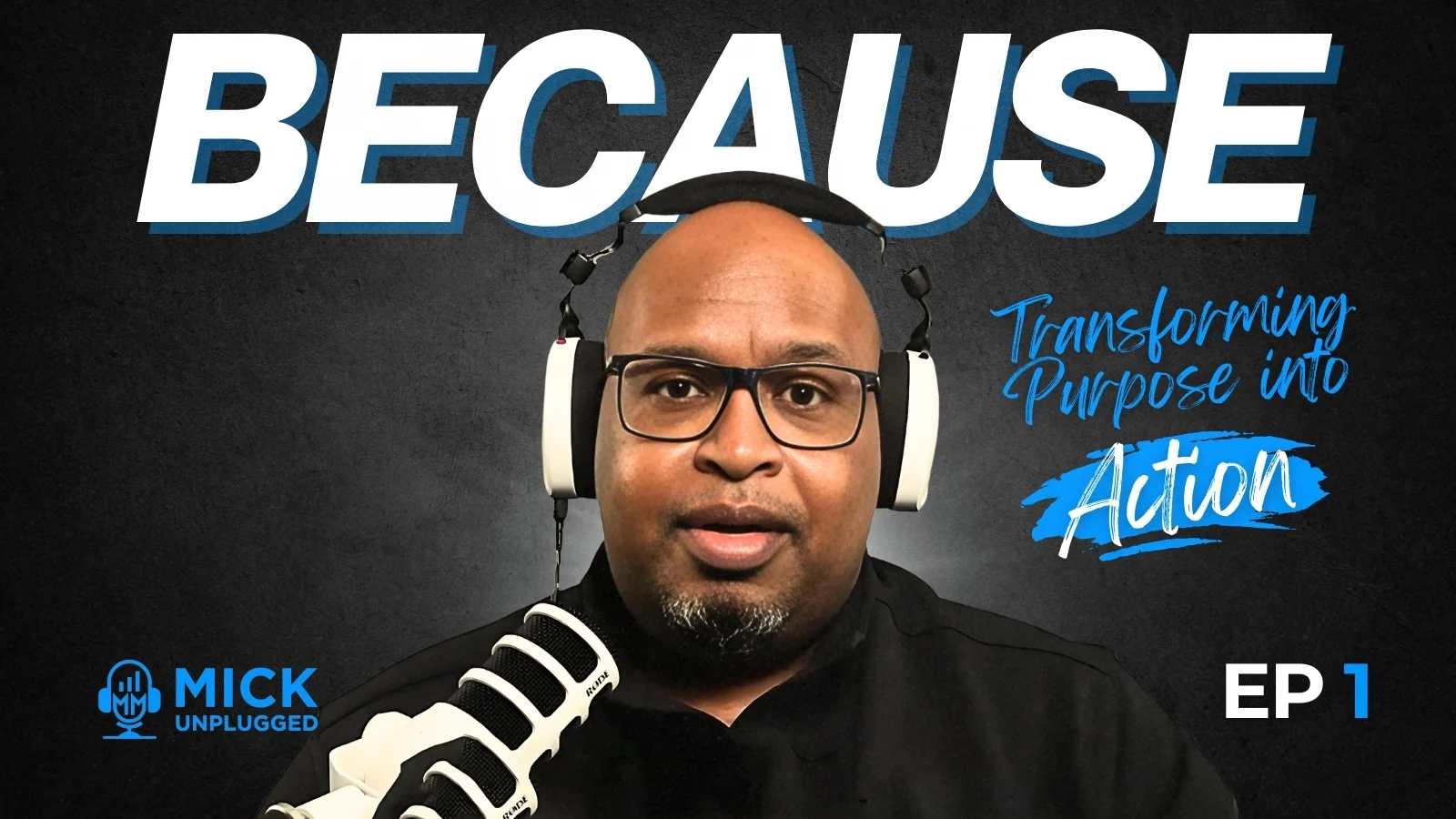[00:00:00] Podcast Intro: Are you ready to change your habits, sculpt your destiny, and light up your path to greatness? Welcome to the epicenter of transformation. This is Mic Unplugged. We’ll help you identify your because, so you can create a routine that’s not just productive, but powerful. You’ll embrace the art of evolution, adapt strategies to stay ahead of the game, and take a step toward the extraordinary.
[00:00:29] So let’s unleash your potential. Now, here’s
[00:00:31] Mick Hunt: Mic. Ladies and gentlemen, welcome to another extraordinary episode of Midcompload. And today we have a guest whose journey is nothing short of inspirational. She’s made waves as an entrepreneur, coach, and speaker, empowering countless women to live their most authentic lives.
[00:00:51] With the mission to help women amplify their voices and achieve their dreams, her work has touched lives globally. Please join me in welcoming the remarkable, the incomparable, Brie Seely. Brie, how are you doing today, dear?
[00:01:03] Bri Seeley: So good. Thank you for having me and for that very generous introduction.
[00:01:08] Mick Hunt: It’s all about you, Brie.
[00:01:09] It is literally
[00:01:10] Bri Seeley: all about you. Thank you. So happy to be here.
[00:01:13] Mick Hunt: I am glad that you are here and I want to go right into it. You do a ton of amazing work. Your TEDx talk is one of my top five of all times. And I love the end because you get very authentic, I’ll say. I was going to say vulnerable, but I think authentic is the right word.
[00:01:31] I want to know, like, what inspired your journey into entrepreneurship? Thank you.
[00:01:35] Bri Seeley: I mean, a lot of it, of course, obviously, is like the environments in which we grow up in, right? So, I was raised by a super, super powerful, bad lady, like, just like she was a single mom. She dealt with a lot of things, like navigating court systems, keeping me safe, like, all sorts of things.
[00:01:54] Not getting the child support she needed to survive. Support us like all the things she worked three jobs when I was growing up. She worked so hard to provide like a really beautiful life. And I witnessed though her struggling in her job in corporate America, you know, in the eighties, like misogyny, just so many things.
[00:02:14] She’d work really, really, really hard for us to just kind of like make ends meet. And it was really when she started diving into entrepreneurship when my sister was born, she opened a daycare so that she could stay home with my sister, right? And make money while not having to like pay daycare costs.
[00:02:30] They went into owning a candy store in our hometown. She went through all these things. She’s been an Airbnb owner. They’ve had rental properties, all these things. And so I started to see like the. Freedom that entrepreneurship provides you while also seeing the limitations that she had faced the limitations.
[00:02:47] My grandmother had faced the limitations. My great grandmother had faced and kind of got to a point where, you know, I was working a corporate esque job and was like, this is not it. I don’t want to struggle the same way that they have. I don’t want to be boxed in to this existence. You know, my job was providing more and more restrictions.
[00:03:06] And at one point they were like, Hey, you’re only working 10 hours a week, but you’re like getting a full time salary. Either you have to put in more hours, even though you’re getting all your work done, or we’re cutting your pay in half. And I was like, No, neither of those options. I’m going to pick the third option that you didn’t even put on the table.
[00:03:25] And I collected unemployment for six months and I figured it out and have been a full time entrepreneur for literally 10 years. I mean, that happened at the end of May, 2014. So I didn’t even realize I just hit 10 years of being a full time entrepreneur.
[00:03:42] Mick Hunt: Congratulations. Congratulations. And I know being a fellow entrepreneur, it’s never easy.
[00:03:48] I also know being a minority, the chips are already sacked against you before you even start playing the game. What were some of the most significant challenges that you face when you were starting your businesses? And then more importantly, especially for the listeners, what did you do to overcome them?
[00:04:03] Bri Seeley: You know, I think it’s interesting because I’ve faced them. And then I also see them in almost every single one of my clients is that as women, we have never lived in a time in which we get paid for our value in the same, like The energy out matches the energy coming in, right? Like that has never existed in our lifetimes.
[00:04:23] And then you add on like minority women, like women of color, and then it stair steps down, it gets even worse. One of the things that I struggled with, and then I see my clients struggle with, is we don’t charge what we need to be charging in our businesses when we first start out. And of course it’s like a super nebulous conversation too, because it’s like, we’ll charge your value.
[00:04:43] Well, what does that mean? What’s my value? And there’s a lot of work that has to go into it. But what I see consistently, and again, what I saw in myself, especially in my first year of business, I luckily like had someone that kind of kicked me in the butt who, you know, was like, you’re undercharging. This is what you need to charge.
[00:04:59] And I was like, can I do that? And I tripled my prices and within two weeks I had signed three clients, which was more than I’d signed in like the six months previous. Right. I think part of it is we can mix up our feelings so much in the pricing conversation. And I like to take more of an objective look at it to say like, okay, what is the actual impact of what you’re providing to people?
[00:05:22] So for example, I had a client that came to work with me in 2018. She just called me two weeks ago and told me she had her first seven figure fiscal year. Because of the work we did together in 2018, I’m not cheap in my pricing because I know where I’m taking you. We might not get there in a year, but if you get there in six years based on what we do together, like, that’s of value.
[00:05:45] I like to look at it a little more objectively and say if I’m working with someone, I just had a client who did her average annual revenue in 90 days. If you’re looking at those kinds of things, I have another client that just tripled her monthly recurring revenue. If you’re looking at those things, like that’s the value and you can like put tangible numbers behind those things and then say like, okay, based on that, if I’m helping someone two, three, four, five times their revenue.
[00:06:12] What needs to be the value coming in so that exchange is equal? Definitely, I would guess that pretty much anyone listening to this, probably undercharging, and the solution to it is to start looking at it a little more objectively rather than tying up your feelings in it. I hate the conversation of charge your worth.
[00:06:32] Do not charge your worth. Worth is a feeling. Feelings change. Charge based on value. Value is based on facts. Facts don’t change.
[00:06:41] Mick Hunt: Couldn’t agree with that more. And I actually had a similar conversation. I’m going to name drop Damon John really quick, but I had a conversation with Damon John and was like, you know, Mick, here’s the deal.
[00:06:50] The reason that most coaches, consultants, and service providers don’t make what they should is because they don’t charge enough. So exactly what Bree said. And Damon said, Mick, if the value of what you do is 50, 000, then charge 50, 000, you shouldn’t feel like you need to low ball yourself or compare yourself to what others are charging.
[00:07:11] And that literally changed my life a long time ago was if the value of what you do is 50, 000, then that’s what you charge and be okay with it because you will actually find more customers that respect what you do when you charge what you should totally echo what you’re saying. Thank you.
[00:07:25] Bri Seeley: Yeah. And then what’s cool is the people that aren’t aligned with paying that, they’re going to self select out.
[00:07:31] What I find, honestly, like, I just had someone who was like, Yes, I’m in. I want to work with you. And then all of a sudden she was like, Oh, the payment feels a little steep. And like, I don’t know. And like, could we renegotiate payment terms? And I was like, come back to me when you’re ready. I know the value of where I can get you to.
[00:07:46] You’re currently charging half. Of what you need to be charging. So in our first week, if you’re immediately doubling your prices, like I don’t diminish my value because someone’s afraid of the results. Like I hold my value because what it does is then it invites that person to join me there so that they can hold their value.
[00:08:08] Like I don’t diminish my value because that’s not serving the other person. Then they’re given permission to continue diminishing their value. And then both of us are losing.
[00:08:19] Mick Hunt: One of the things, Bri, you know, knowing you, like I do just from researching you and following you. And by the way, make sure you’re following Bri, we’ll end the segment with how you can follow her, but make sure you’re doing that.
[00:08:29] You truly believe in impact, right? Like I would say impact is probably one of the things that you’re most proud of in what you do. And you’ve gone through some success stories just briefly here in the last couple of minutes, but what’s one success story that stands out in your world as an impact as a coach?
[00:08:46] Bri Seeley: So I think that one that I mentioned about that client having her first seven figure fiscal year, because, so what I didn’t mention earlier, I was trying to keep it a little short was when she met me in 2018, she was going through a divorce. She was on the brink of bankruptcy. She has many kids. I can’t, I think she has like six or seven kids.
[00:09:04] She had moved all of them into this tiny little house. I think her car was getting repossessed. Like she was not in a very great place. And despite all of those things, she had this inkling inside of her that something more was available to her. Objectively, did it look like it made sense for her to make an investment in her future in that moment?
[00:09:26] No, it didn’t. Like she didn’t know what was going to happen. But then you move forward in time six years, she now has a team of almost 70 women working under her. She’s doing six figure months consistently. Oftentimes it’s the first step. That’s the hardest to take. And I love her story. And I just, she happens to live in the same city as me now.
[00:09:49] We did not, neither of us lived there when we met six years ago, but we’ve both since moved there. She’s on the board of my nonprofit. I get to see her all the time. We just went to a movie, Inside Out 2, on Saturday together. Like, she truly, to me, is the testimonial of what is possible for everyone. You have that little whisper inside of you.
[00:10:10] You have that little inkling inside of you that there’s something more available. There is, do you have the courage to take that first step, even when the circumstances outside of you are showing you that it doesn’t make sense.
[00:10:24] Mick Hunt: I’d love to go deeper right there, Bree, because I have several friends that are either currently entrepreneurs or they know that that’s the step that they need to go into.
[00:10:35] But they can’t take that first step. And for me, it’s a mindset thing, right? Like I, I totally believe that you’ve got to be willing to take risk, but you also have to be willing to do the work to put yourself in certain situations. So I’d love to go deeper into that. So, or the female that’s listening or watching.
[00:10:51] They’re at that stage where, you know, they’re a new entrepreneur or they know that they want to do it. What are, what’s some advice that Brie has to that?
[00:10:58] Bri Seeley: A lot of people, when they’re standing, like where that client of mine was standing and they look and they say, okay, well, I know where I’m at right now and while it’s not where I want to be, like the risk of making a change.
[00:11:09] Like that’s a risk. What we fail to look at in that moment is there is also a risk in staying where you are. There’s a risk in not taking that step. So we look at the risk of movement, but we don’t look at the risk of stagnancy. And so I would encourage you to look at, like, if your life was the same five years from now, would you feel satisfied?
[00:11:32] Would you say, oh, thank God I never took that step. If things were to continue going as they are and nothing were to change, would you feel satisfied in five years? You know, I would say that probably for like 95 percent of people that answer to that is like, no, I wouldn’t be satisfied. So then the question becomes, what are you willing to do about it?
[00:11:49] And from my perspective, okay. I’ve been a full time entrepreneur for 10 years. There have been multiple times where I’m like, how am I going to pay my rent this month? I was applying for food stamps in 2015. The journey I’ve been on, like no one knows all of the intricacies of it, but like, yeah, it was hard.
[00:12:05] And I wouldn’t be where I am today if I hadn’t taken those steps 10 years ago. If I hadn’t invested in a coach, when I first started this business, we didn’t even get into this. I started this business because I was guided to close the business that I’d had for eight years. I had to close the door to something massive that I thought was my destiny and say goodbye to it forever to step into this.
[00:12:31] And I wouldn’t be making the impact I’m making if I hadn’t done that. And if I hadn’t hired the coach to help me, cause I had a product based business, very different from running an online based. Consultancy, right? I had to learn new skills. I had to learn way more about business than I’d ever known. For me though, I wear a bracelet that says, enjoy the journey.
[00:12:51] I wear it every day. And that for me has been part of the importance of all of this. Has it looked perfect? No. Have there been days where I’m like, I don’t know how I’m going to eat next week. Yeah. Have there been days where I’m like, thankfully there are a lot of compassionate people in my life. When I go to, I had to go to my landlord in Los Angeles in 2016 and say, I can’t pay my rent this month.
[00:13:11] I was like, charge me whatever late fees you need to charge me. And he’s like, you’ve been an exceptional tenant for many, many, many years. We’re not charging you late fees. Get it to me when you can. You know, like, and for me, I think the hard parts of the journey are not a detriment to tell me I shouldn’t have taken the risk.
[00:13:27] They’re the moments that have kind of forced me to show myself what I’m capable of. I think entrepreneurship is like, you’re the one out there forging the path. You’re in a big thick forest and you’ve got a machete in your hands. And the only thing getting you through that forest is yourself. And you have to show yourself every day, what you’re capable of.
[00:13:46] You have to keep going and keep taking the steps when you’re tired, when it doesn’t make sense, when the odds are stacked against you, you just have to keep going. And you just continually have to prove to yourself what you’re capable of.
[00:13:58] Mick Hunt: Amazing. I’m going to unpack a couple of things here because your last segment was exactly what my mentor, Les Brown, when he coined the phrase, the Mick Factor.
[00:14:08] So this was Les Brown. So he took the letters of my name and my CK and the K is keep going. And so the back half of everything that you just talked about embodies that. And I think that’s a, it’s not a skill. It’s not a trait. It’s something that’s in you. I love the fact that no matter what you kept going and no matter what you found a way.
[00:14:30] And I think for most people, that’s where they stop when it’s time for them to dig deep when it’s time for them to find that thing inside of them. That’s when they give up and in my two least favorite things happen in the world excuses and then explain and justify. Right. I’m going to make an excuse and then I’m going to explain and justify where I’m at.
[00:14:50] So I’d love to have to hear your take on that.
[00:14:52] Bri Seeley: Yeah. I mean, that is why I personally believe in having coaches on our journey because when we’re in it, I said this analogy the other day, like a fish doesn’t know they’re swimming in water. Like we can’t see the oxygen that’s all around us all the time. So when we’re in it, we can’t see it, which is why, like where the excuses come from, because they’re based on our current perspective and not the bigger picture perspective.
[00:15:19] Sometimes we can’t get to that 50, 000 foot view when we’re in it. And so like, that’s where I love to bring in someone else and just say, like, This is what I’m seeing. Like, I’m seeing that the only option right now is to give up. I cannot see myself out of this hole. When you have someone else who’s like that eagle flying at that 50, 000 foot view and they’re looking and they’re like, Ah, I actually see like a little pathway right over here.
[00:15:46] That’s going to, like, really help you and, like, bring you to whatever that next step is for you. I personally like to surround myself with people. I, about a month ago, five weeks ago, had, like, a pretty hard, like, mental health challenge pop up and, like, kind of was, like, not doing well. I got, like, super triggered by something and just started spiraling.
[00:16:06] And I could have stayed spiraling. Like, I very well could have stayed spiraling. Once you get down there, like, you know, got my blanket. I got, I’m like comfy down there. I’m like good. But instead I picked up the phone and I called two very specific people in my life and was like, I need some perspective because I’m in the hole and I cannot see my way out of it right now.
[00:16:28] Like, what do you see? One, both of them were like, I’ve been in a very similar spot in the last few weeks, so also, it’s not you. Something that is just like, maybe collectively happening, or as leaders, we’re all being asked to step up even more right now, or something, and here’s what we see. And talking to both of them and then going into meditation, I was in meditation on May 13th.
[00:16:51] It was my birthday and I was like, man, I just feel like I’m dying. Like, what is going on? This is not okay. What is going on? And I got this very clear. I get a lot of very clear messages and meditation. It said, well, you are. Just not like that. And I was like, Oh, I’m having an identity. Like there is a piece of me right now that is ready to be released that I’m like holding onto.
[00:17:17] And literally after that moment, I was like, all right, I’ve done this before. I’ve let go of pieces of my identity before I can do it again. And it came from being willing to have the courage to reach out, ask for help and get that outside perspective that I just couldn’t see in the moment.
[00:17:33] Mick Hunt: And that is so amazing.
[00:17:34] And it’s one of the things that I always speak on as well. It’s two things. One, the power of mentorship. And then number two, it’s always evaluating your circle. Right. And I want to go to mentorship first, because essentially as a coach, that’s who you are. And I always believe that coaches have coaches who’s been an inspiration for you in your life.
[00:17:55] And then tell the listeners and the viewers why mentorship is vastly important as an entrepreneur.
[00:18:01] Bri Seeley: I mean, I’ve worked with a bunch of different people throughout like the different. Stages of my life. So like when I had my fashion label, I hired my first coach and she was kind of the one that got me into realizing like, Oh, this is a business.
[00:18:16] Like it had just kind of been a side hustle for me. And she introduced me to the E Myth and like got into that perspective. And then I moved to Los Angeles and I was with the small business development center and they assigned me. to two different mentors who I’m still in contact with today, whatever, 11 years later.
[00:18:32] And like, they still, one of them, well, she’s like, remember that first time I met you and I told you there was something special about you. And like, she’s always breathing possibility into me for 11 years. You know, when I started this business, like I said, I brought on a mentor who knew way more about building an online business than I knew.
[00:18:50] And I was just not willing to trial and error it. And so I needed that. I just got done working with a woman. Um, oddly enough, the coach from 2015 and this coach both named Amanda. I don’t know what it is about Amanda’s, but like, they really work for me. And so like this coach helped me really get back into, I’ve fallen into this trap and habit of like, maybe not making offers as frequently as I should, or having the like, I need to have levers to pull to like generate more revenue in my business.
[00:19:21] And she really got me back into that of like, how to do sincere sales and like how to have offers that feel really good to me that are providing value and how to talk about them. And so like, even though I’ve been in this for nine years now, like I still needed that help to get over that. And so, you know, I think mentorship.
[00:19:40] Not only can it help you see a bigger picture, but it will help you, like I said, with that first coach in this business, avoid a lot of the pitfalls and like shortcut you from having to learn whatever you’re going to learn through trial and error, because they’ve already done it. And they can be like, Hey, there’s a pothole coming up that you’re going to hit.
[00:19:57] This is how you get around it. In
[00:19:59] Mick Hunt: the words and world of Bree Sealy, how important is evaluating your circle?
[00:20:06] Bri Seeley: This is something that I talk about all the time and possibly one of the hardest conversations because there are going to be people that just don’t, speaking of the journey, that just don’t journey with you to the next step, and it doesn’t mean they’re bad people, and it doesn’t mean that we don’t still love them, and it doesn’t mean that there’s anything right or wrong or good or bad about either of you.
[00:20:29] It just maybe means that you just are on different paths. I have had to let go of a lot of people on my journey and my path from all the way back to like 2009, I can like think of one all the way back to like three months ago. I had to let go of a really close friendship. And one of my detriments that I fully embrace and own is that I see the possibility in people.
[00:20:54] And I can look at someone and they can tell me like who they are, what they want, like their vision. And I’m like, Oh my gosh, I can see the bigness of this thing. And then what happens is like I’m ascending on my path and I’m like, come on, come with me. You can do it. Like, come on, keep up. Like we’re doing this thing.
[00:21:12] Like come with me, let’s go. And what I’ve realized is my path isn’t other people’s path. If I’m like ascending on my path and a really close friend is just like not, again, it’s like nothing against either one of us. It just maybe isn’t the right fit for friendship and we can have all sorts of different friends.
[00:21:34] We can have friends that we have fun with, but that core group of people that’s maybe like supporting you in your business, if they’re not entrepreneurs and they’re around you all the time and they’re saying like, you can’t make a living as an entrepreneur. What do you think that’s going to do to you in your future?
[00:21:48] Probably hold you back. So maybe having a circle of entrepreneurs who breathe into you. You can do this. I believe in you. Keep going. Maybe that’s more of the energy you need around you to help you get to where you want to go.
[00:22:02] Mick Hunt: Totally agree. Like, and I say this, there are people and you’d be surprised at who these people are in your life.
[00:22:08] Right? Like some of them can be coworkers. Some of them can be best friends. Some of them can even be spouses that only want to see you go so far because they can’t see the other side. And those are the people that I call entrepreneur killers. Because as an entrepreneur, it’s hard, right? There’s nothing easy.
[00:22:28] There’s almost no such thing as work life balance at certain stages of being an entrepreneur. And there are certain people that just want to see you try and not necessarily make it, but then not support you the whole way. So I totally agree with what you’re saying, Bri. I evaluate my circle twice a year.
[00:22:42] And this is what I want people to know. And I know Bri is saying the same thing. It doesn’t mean that you’re necessarily getting them out of your life. It just means they’re not in your circle, right? It means that they can still be on the outside looking in. So don’t be afraid to move someone from inside the circle to outside the circle.
[00:22:58] And like I said, Bree, I do that twice a year.
[00:23:00] Bri Seeley: And I think it’s important to like, cause I always want, I always say to people, I love my parents. So much, and they’ve been so supportive of me in 2021. I finally had to have this, like, come to Jesus moment with my stepdad, because he would always be like, you know, you could go out and get like a really good job and make like 70, 000 a year.
[00:23:20] I’m like, you know, I have the power to do 70, 000 a month in my business. Right? And a friend of mine explained it to me this way. She said, a turtle does not have the perspective of a giraffe, nor do they try to. Right? Like, a giraffe’s not getting down on the ground trying to, like, see from a turtle’s perspective and a turtle’s not climbing a tree to see from a giraffe’s perspective.
[00:23:40] And it’s not that he doesn’t want me to succeed, it’s that literally, he doesn’t have the perspective to believe. That 70, 000 a month is a reality that could be available to someone. And so for me, I’m like, Oh, I speak Latin and he speaks Spanish. We just speak different languages and there’s nothing wrong with that.
[00:24:03] I did have to put a boundary in place and say, you’re never again, allowed to do that. And he hasn’t since, which is great, but just because we speak different languages doesn’t mean we can’t still love each other. It doesn’t mean that we can’t still be family. It doesn’t still mean that we can’t spend time together.
[00:24:16] It just means like, I don’t necessarily go to them to talk about if I’m facing a challenge in my business, because I don’t want to go to someone that’s going to say like, oh, you should quit. What really I need to go to someone that’s going to say like, Hey, you’re missing opportunities. You’re leaving money on the table here, here, here, and here.
[00:24:33] Go get that. And then come back to me and let’s talk again.
[00:24:36] Mick Hunt: Completely agree. Brie, we’ve already been on for like almost 30 minutes. I swear. It feels like two, it feels like two. So really quick, what are some upcoming projects that you have? And then also where can people find you follow you? What’s going on with Brie Seely?
[00:24:52] Bri Seeley: I’m launching a new podcast, which I’m very excited about. It is launching in August. It is called the Big Goal Energy Podcast. I am super excited because we’re actually going to be doing round tables. So I filmed the first two episodes yesterday and it’s me and three other women discussing different topics around business and things like that.
[00:25:12] And I was a little nervous because everyone was like a round table. How’s that going to work? And I was like, I have no idea, but the two episodes yesterday are awesome. So I’m really excited to be launching that podcast. You can be able to find us on any major platform and or come follow me on Instagram at Bree Seeley or at Big Goal Energy Now.
[00:25:31] It’ll be all over both of those platforms as well when we launch. And I’m thinking about also launching a women’s magazine. Playing with the idea a little bit. And then I also run the only women’s wealth conference in the Midwest. So if anyone is in or around or wants to be in Tulsa, Oklahoma in November, come join us at success becomes me.
[00:25:51] It is an awesome experience. And this year is going to be even better than last year.
[00:25:55] Mick Hunt: Amazing. And I’ll put all of that information in the show notes and all the links. So everything on social will be there as well. Brie, thank you so much for blessing us with your time today. I know you’re incredibly busy human being.
[00:26:07] There’s so much more that we could do. I’m probably just going to have you come back if you’re okay
[00:26:11] Bri Seeley: with that. We may have to do a second episode.
[00:26:13] Mick Hunt: I think so. So Brie again, thank you so much and totally supportive of everything that you’re doing.
[00:26:19] Bri Seeley: Thank you. Same.
[00:26:20] Mick Hunt: All right. And so for all the listeners, remember your because is your superpower.
[00:26:26] Podcast Outro: Thanks for listening to Mic Unplugged. We hope this episode helps you take the next step toward the extraordinary and launches a revolution in your life. Don’t forget to rate and review the podcast and be sure to check us out on YouTube at Mic Unplugged. Remember, stay empowered, stay inspired and stay unplugged.






